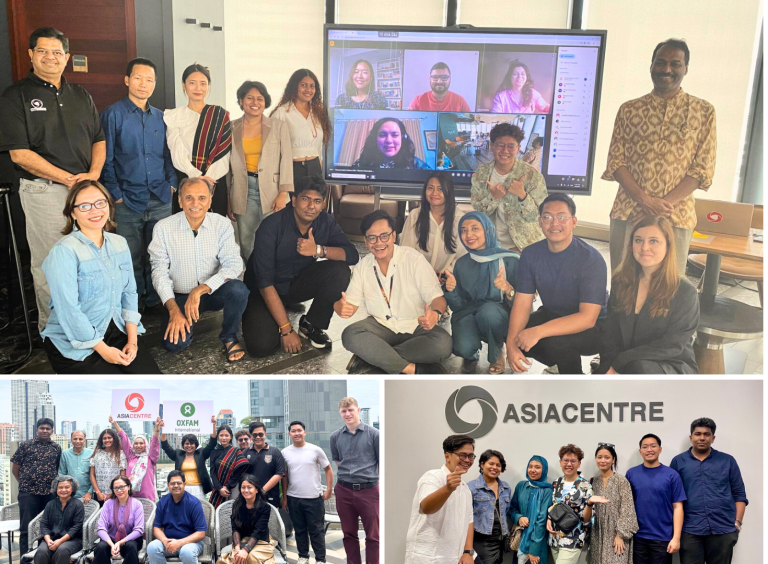Asia Centre contributed to the search for solutions to the humanitarian crisis in Myanmar and Bangaldesh during the International Conference on the Rohingya Refugee Crisis: Towards Sustainable Solutions, held in Dhaka from 2-3 April 2018.
The conference revealed Bangladesh’s pressing search for assistance with the humanitarian crisis, its concern over the implications – economic, ecological, political and social – of hosting over one million Rohingya for the long term, and its search for durable solutions (e.g. safe repatriation), which ultimately lie in Myanmar.
In this context, Dr. Robin Ramcharan examined the role of ASEAN in the crisis. He noted the challenges for ASEAN in addressing the humanitarian tragedy that has unfolded as over 700,000 Rohingya have fled Myanmar into neighbouring Bangladesh since August 2017. He noted that while some ASEAN leaders were quite concerned with the plight of the Rohingya, ASEAN’s response has been timid, limited to statements at ASEAN Summits and hosting some of the refugees.
He noted that for ASEAN to  make more decisive contributions to resolving the crisis, it needed to overcome its adherence to non-interference, to move towards a new decision-making model for such crisis situations, and to live up to the norms adopted in the ASEAN Charter, namely, good governance, rule of law and human rights.
make more decisive contributions to resolving the crisis, it needed to overcome its adherence to non-interference, to move towards a new decision-making model for such crisis situations, and to live up to the norms adopted in the ASEAN Charter, namely, good governance, rule of law and human rights.
The Bangladeshi government, think-tanks and civil society representatives at the conference all raised the issue of compensation to the host state occasioned by hosting large-scale refugee movements. One Bangladeshi legal scholar sought to make the case for ‘State responsibility for compensation’ to the host state resulting from such large scale refugee movements.
Additional salient points made by participants at the conference were: 1) The right of return of the Rohingya will likely remain unfulfilled for a long time since the conditions for safe return to Myanmar are not present; 2) The Rohingya in the camps need full assistance from the international community; 3) Bangladesh also needs full support as they deal with the massive influx of refugees, their various needs and the environmental impact; 4) A full understanding of the crisis requires an appreciation of the geopolitics of the region, featuring competition between China  and India for influence in Myanmar; 5) The need to address the root causes of the crisis, among which is the issue of citizenship for the Rohingya; and 6) The need for accountability for violations of human rights in Myanmar.
and India for influence in Myanmar; 5) The need to address the root causes of the crisis, among which is the issue of citizenship for the Rohingya; and 6) The need for accountability for violations of human rights in Myanmar.
Asia Centre contributed to the drafting of the Dhaka Declaration issued at the end of the Conference on 3 April, which was organised by the Centre for Genocide Studies of the University of Dhaka, the Centre for Peace and Justice at BRAC University and ActionAid Bangladesh. It called for, inter alia, the “UN and the international community to use diplomatic channels to provide sufficient humanitarian assistance and other support to ensure protection and rights of Rohingya women, children and other vulnerable groups”. The Declaration also called on the international community to comprehensively investigate the ongoing acts of genocide, mass atrocities, crimes against humanity and ethnic cleansing in Myanmar. It called for the prosecution and punishment of those offenders responsible for such violations. 
Asia Centre will continue to address the above issues during its forthcoming conference, The Rohingya Crisis: A Multidimensional Tragedy, on 24 August 2018. Researchers at this conference will examine the deeper roots of the current crisis in Myanmar.



